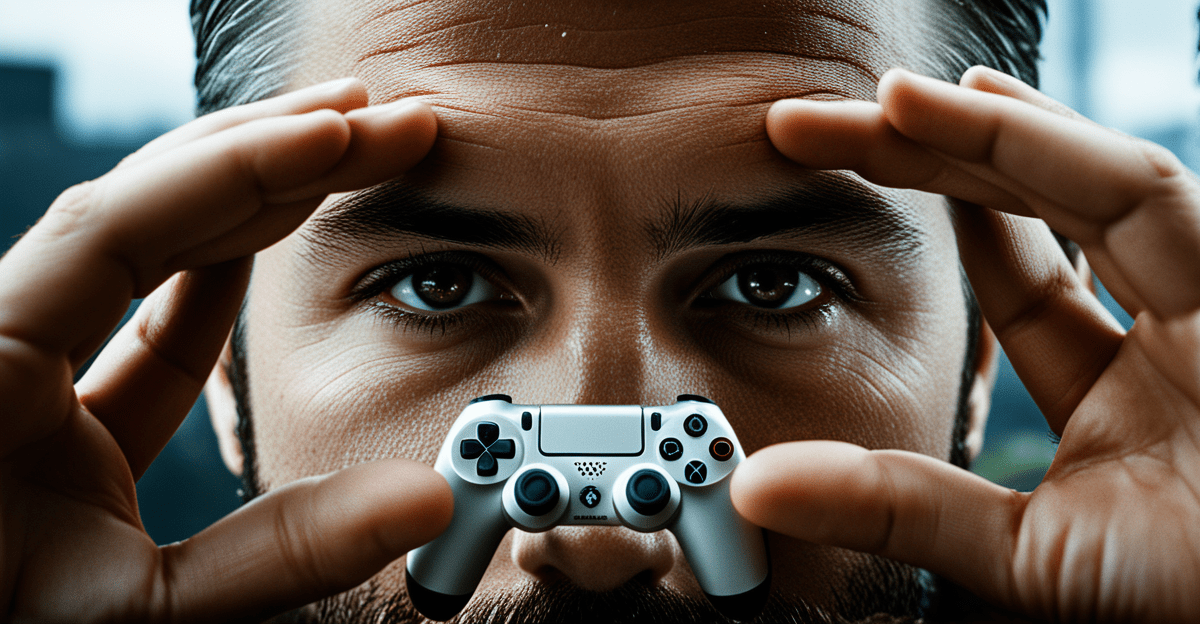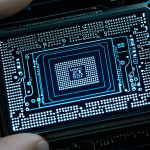Core Effects of Video Games on Cognitive Skills
Video games and cognitive skills interact in multifaceted ways, influencing areas such as memory, attention, and problem-solving. Scientific studies consistently highlight that gaming can enhance these core cognitive domains by engaging players in tasks that challenge their mental faculties. For instance, gaming often requires sustained focus, rapid decision-making, and spatial navigation, which collectively foster sharper cognitive abilities.
The effects of gaming on the brain vary considerably depending on age and how frequently someone plays. Younger individuals, whose brains are still developing, often show more pronounced gains in cognitive flexibility and memory retention from moderate gameplay. However, the influence of video gaming on mental abilities demonstrates a nuanced pattern: occasional players might experience immediate benefits in attention, while frequent gamers may develop advanced problem-solving skills due to the complexity and variability of challenges in many games.
Also to see : How are UK developers integrating blockchain into gaming?
Overall, the cognitive improvements linked to gaming result from its interactive nature — stimulating areas that govern working memory, attention control, and analytical thinking. This blend of mental engagement and repetition encourages skill reinforcement, illustrating why video games and cognitive skills form a dynamic, reciprocal relationship.
Core Effects of Video Games on Cognitive Skills
Research into the effects of gaming on the brain has consistently shown that video games can influence several key cognitive domains, including memory, attention, and problem-solving. These domains collectively contribute to improved mental abilities, such as faster information processing and enhanced decision-making.
Also to see : How Can Historical Video Games Enhance Our Understanding of the Past?
Studies measuring the influence of video gaming on mental abilities reveal that consistent gameplay can lead to measurable improvements in working memory and visuospatial skills. For example, action games often require players to track multiple objects and make rapid decisions, which strengthens attention span and cognitive flexibility. In contrast, puzzle and strategy games engage higher-order problem-solving, fostering logical reasoning and adaptive thinking.
Age and frequency of gaming are important factors. Younger gamers tend to exhibit stronger neuroplastic responses, with more pronounced cognitive gains in learning speed and multitasking. However, even adults benefit from regular gameplay, especially when sessions are moderate and involve cognitively demanding games.
Together, the body of evidence highlights that video games and cognitive skills are intricately linked, with variations dependent on the type of game and the player’s engagement level. This nuanced understanding supports tailored gaming choices to enhance specific mental faculties.
Enhancements in Attention and Processing Speed
Research consistently shows video games and attention interact to produce meaningful cognitive improvements. Action and fast-paced video games, in particular, offer processing speed improvement by requiring players to rapidly interpret visual stimuli and make quick decisions. This constant demand trains the brain to efficiently filter relevant information, improving selective attention and response times.
The effects of gaming on the brain extend to heightened visual processing abilities. Players often outperform non-gamers in tasks requiring tracking multiple objects or switching focus among competing stimuli. This enhanced multitasking ability results from the dynamic, unpredictable environments commonly found in many games.
More specifically, studies reveal that the influence of video gaming on mental abilities includes faster reaction times and better sustained attention. For example, frequent gamers demonstrate superior performance in tests measuring auditory and visual attention. This boosts everyday activities requiring quick information processing, from driving to workplace tasks.
In summary, the effects of gaming on the brain reflect measurable gains in attention control and processing speed. These cognitive benefits highlight the practical upside of engaging regularly with well-designed video games that challenge and sharpen mental faculties.
Core Effects of Video Games on Cognitive Skills
Video games and cognitive skills intersect primarily by enhancing memory, attention, and problem-solving capacities. The effects of gaming on the brain show consistent improvements in these domains, with video games requiring active engagement in complex tasks that sharpen mental faculties.
The influence of video gaming on mental abilities depends heavily on several factors. Age plays a crucial role: younger players tend to experience greater cognitive benefits due to higher neuroplasticity, whereas adults often see more modest but still meaningful gains. Frequency of gameplay also affects outcomes. Moderate gaming sessions promote cognitive enhancement, while excessive or infrequent play may dilute benefits.
Scientific studies highlight that different cognitive skills improve according to the gaming context. For instance, working memory and multitasking abilities are often strengthened through games demanding rapid information processing. Problem-solving and logical reasoning get a boost from strategic gameplay. Together, these findings underline a nuanced picture of how video games and cognitive skills dynamically interact, influenced by both who is playing and how often. This confirms that gaming’s cognitive effects are neither uniform nor incidental but rather shaped by targeted mental challenges within games.
Video Games and Memory Development
In exploring video games and memory, research reveals that gaming significantly boosts both working memory and spatial memory. Working memory improvements occur because many games require players to hold and manipulate information actively, such as remembering objectives or mapping in-game environments. This frequent mental juggling strengthens brain regions responsible for short-term memory retention.
Studies measuring the effects of gaming on the brain demonstrate that specific genres, especially puzzle and action-adventure games, lead to measurable gains in memory performance. For example, players of complex strategy games show enhanced spatial memory, vital for navigating virtual worlds and solving location-based challenges.
The influence of video gaming on mental abilities related to memory appears in both short-term and long-term contexts. Short-term memory benefits help with immediate task management during gameplay, while consistent gaming encourages lasting neural adaptations that improve overall memory retention. This dual enhancement is crucial to understanding why video games act as effective cognitive training tools.
Overall, memory advancement through gaming depends on active engagement and the cognitive demands of the game, confirming a targeted approach to selecting games enhances working memory improvements and spatial skills effectively.
Core Effects of Video Games on Cognitive Skills
The effects of gaming on the brain predominantly influence three key cognitive domains: memory, attention, and problem-solving. Video games and cognitive skills interact as gameplay demands active engagement in tasks that require these mental faculties. This combination results in measurable working memory improvements, enhanced attentional control, and more efficient problem-solving strategies.
Scientific studies demonstrate that the influence of video gaming on mental abilities varies significantly with age and frequency of play. Younger players benefit from heightened neuroplasticity, leading to faster learning and greater cognitive flexibility. Adults still experience gains, especially with regular, moderate gameplay that challenges executive functions. Conversely, excessive or irregular gaming tends to reduce positive outcomes, stressing the importance of balanced engagement.
Further, the type of game moderates cognitive gains. Action games promote rapid information processing and spatial attention, while strategy and puzzle games foster logical reasoning and adaptive thinking. This nuanced evidence underscores how video games and cognitive skills connect dynamically, shaped by the player’s age, gaming habits, and the specific cognitive demands presented during gameplay.
Core Effects of Video Games on Cognitive Skills
The effects of gaming on the brain span several core cognitive domains, including memory, attention, and problem-solving. Video games and cognitive skills are linked through interactive challenges that actively engage mental faculties, driving improvements in these areas. Scientific studies confirm that gameplay can enhance working memory, boost attention control, and foster stronger problem-solving abilities.
The influence of video gaming on mental abilities varies depending on factors like age and frequency of play. Younger players often experience heightened neuroplasticity, leading to greater gains in cognitive flexibility and memory retention. In contrast, adults benefit primarily when gaming sessions are consistent and cognitively demanding. Moderate play optimizes benefits by avoiding overstimulation or cognitive fatigue.
Research highlights that different game types stress distinct cognitive functions. For example, action games push rapid decision-making and attention span, while strategic games encourage logical reasoning and adaptive thinking. Together, these diverse cognitive demands illustrate how video games and cognitive skills interact dynamically, producing tailored cognitive enhancements shaped by both player characteristics and gaming habits.
Core Effects of Video Games on Cognitive Skills
Video games and cognitive skills primarily influence memory, attention, and problem-solving domains. The effects of gaming on the brain arise because games engage players in tasks requiring active focus, rapid adaptation, and logical reasoning. Scientific studies consistently find that this mental stimulation leads to working memory improvements by demanding players hold and manipulate information actively during gameplay. Attention is sharpened as players track multiple stimuli and respond swiftly, illustrating the influence of video gaming on mental abilities in enhancing selective and sustained focus.
Problem-solving skills also improve significantly, particularly when engaging with games that require strategic planning and critical thinking. These cognitive enhancements vary by age and gaming frequency: younger players often experience stronger benefits due to greater neuroplasticity, while adults gain from structured, moderate play. Conversely, irregular or excessive gaming may mitigate cognitive advantages. The interactive environment of video games offers a unique platform to simultaneously boost these key cognitive functions, reinforcing the clear link between video games and cognitive skills across diverse populations and gameplay habits.
Core Effects of Video Games on Cognitive Skills
Video games and cognitive skills primarily influence three core areas: memory, attention, and problem-solving. The effects of gaming on the brain have been widely studied, revealing that gameplay fosters improvements by actively engaging these mental faculties. Scientific evidence demonstrates that the influence of video gaming on mental abilities depends on various factors such as age and frequency of play.
Younger players benefit from heightened neuroplasticity, exhibiting stronger cognitive flexibility and faster learning. In contrast, adults often experience gains when gameplay is consistent and cognitively challenging, while infrequent or excessive gaming can reduce such benefits. The nature of the game also matters: action games enhance rapid information processing and selective attention, whereas strategy and puzzle games mainly improve logical reasoning and adaptive thinking.
These findings indicate that the effects of gaming on the brain are neither uniform nor incidental but shaped by how and how often games are played, alongside the specific cognitive demands they impose. Tailoring game choice and playtime can optimize the influence of video gaming on mental abilities, making video games a versatile tool for cognitive development.











